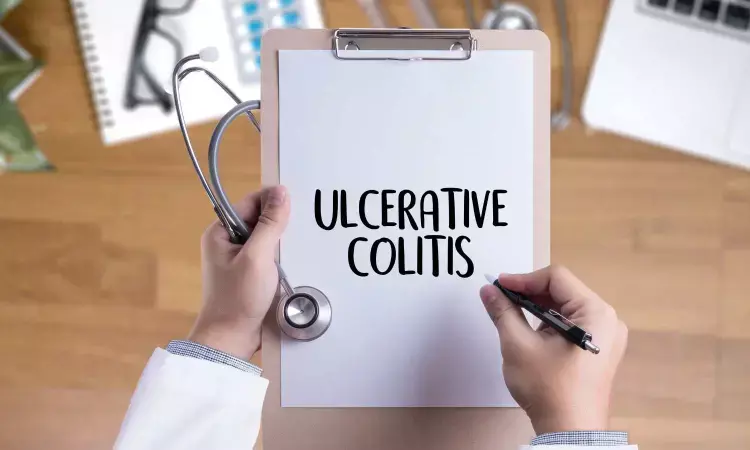- Home
- Medical news & Guidelines
- Anesthesiology
- Cardiology and CTVS
- Critical Care
- Dentistry
- Dermatology
- Diabetes and Endocrinology
- ENT
- Gastroenterology
- Medicine
- Nephrology
- Neurology
- Obstretics-Gynaecology
- Oncology
- Ophthalmology
- Orthopaedics
- Pediatrics-Neonatology
- Psychiatry
- Pulmonology
- Radiology
- Surgery
- Urology
- Laboratory Medicine
- Diet
- Nursing
- Paramedical
- Physiotherapy
- Health news
- Fact Check
- Bone Health Fact Check
- Brain Health Fact Check
- Cancer Related Fact Check
- Child Care Fact Check
- Dental and oral health fact check
- Diabetes and metabolic health fact check
- Diet and Nutrition Fact Check
- Eye and ENT Care Fact Check
- Fitness fact check
- Gut health fact check
- Heart health fact check
- Kidney health fact check
- Medical education fact check
- Men's health fact check
- Respiratory fact check
- Skin and hair care fact check
- Vaccine and Immunization fact check
- Women's health fact check
- AYUSH
- State News
- Andaman and Nicobar Islands
- Andhra Pradesh
- Arunachal Pradesh
- Assam
- Bihar
- Chandigarh
- Chattisgarh
- Dadra and Nagar Haveli
- Daman and Diu
- Delhi
- Goa
- Gujarat
- Haryana
- Himachal Pradesh
- Jammu & Kashmir
- Jharkhand
- Karnataka
- Kerala
- Ladakh
- Lakshadweep
- Madhya Pradesh
- Maharashtra
- Manipur
- Meghalaya
- Mizoram
- Nagaland
- Odisha
- Puducherry
- Punjab
- Rajasthan
- Sikkim
- Tamil Nadu
- Telangana
- Tripura
- Uttar Pradesh
- Uttrakhand
- West Bengal
- Medical Education
- Industry
Tofacitinib Effective both short-term and long-term in patients with Ulcerative Colitis

In a recent study published in the American Journal of Gastroenterology the efficacy, durability, and safety of tofacitinib in treating ulcerative colitis (UC) was thoroughly assessed, shedding light on its potential as a long-term treatment option for this debilitating condition.
The study, encompassing a comprehensive analysis of 408 UC patients who had been administered their first tofacitinib dose at least 8 weeks prior to inclusion, yielded significant insights into the drug's performance. The primary measure of clinical effectiveness was based on the partial Mayo score, a widely recognized index for assessing UC severity.
The study revealed that 45% of the patients discontinued tofacitinib during the follow-up period, which had an average duration of 18 months. The probability of maintaining tofacitinib usage stood at 67% after 6 months, 58% after 12 months, and 49% after 24 months. The leading cause of tofacitinib withdrawal was primary nonresponse, accounting for 44% of cases.
Factors influencing tofacitinib withdrawal were identified as older age at the commencement of treatment and a higher severity of clinical activity. Remission rates were encouraging, with 38% of patients achieving remission at week 4, rising to 47% by week 16. The likelihood of remission at week 8 was linked to the initial disease activity level and age at the onset of tofacitinib treatment.
Out of the patients who achieved remission at week 8, nearly half experienced a relapse, underlining the need for ongoing, long-term management strategies. The study demonstrated that maintaining response was probable for 66% of patients at 6 months and 54% at 12 months.
Safety considerations were also addressed in the study. Among the adverse events attributed to tofacitinib treatment, two cases of pulmonary thromboembolism and two instances of peripheral vascular thrombosis were noted. However, these incidents occurred in patients with pre-existing risk factors. Overall, the safety profile of tofacitinib remained consistent with previous reports.
Source:
Chaparro, M., Acosta, D., Rodríguez, C., Mesonero, F., Vicuña, M., Barreiro-de Acosta, M., Fernández-Clotet, A., Hernández Martínez, Á., Cabello Tapia, M. J., Muñoz Villafranca, C., Vázquez Morón, J. M., … Vicente Lidón, R. (2022). Real-World Evidence of Tofacinitib in Ulcerative Colitis: Short-Term and Long-Term Effectiveness and Safety. In American Journal of Gastroenterology (Vol. 118, Issue 7, pp. 1237–1247). Ovid Technologies (Wolters Kluwer Health). https://doi.org/10.14309/ajg.0000000000002145
Neuroscience Masters graduate
Jacinthlyn Sylvia, a Neuroscience Master's graduate from Chennai has worked extensively in deciphering the neurobiology of cognition and motor control in aging. She also has spread-out exposure to Neurosurgery from her Bachelor’s. She is currently involved in active Neuro-Oncology research. She is an upcoming neuroscientist with a fiery passion for writing. Her news cover at Medical Dialogues feature recent discoveries and updates from the healthcare and biomedical research fields. She can be reached at editorial@medicaldialogues.in
Dr Kamal Kant Kohli-MBBS, DTCD- a chest specialist with more than 30 years of practice and a flair for writing clinical articles, Dr Kamal Kant Kohli joined Medical Dialogues as a Chief Editor of Medical News. Besides writing articles, as an editor, he proofreads and verifies all the medical content published on Medical Dialogues including those coming from journals, studies,medical conferences,guidelines etc. Email: drkohli@medicaldialogues.in. Contact no. 011-43720751


